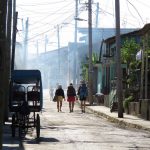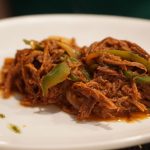General information about Cuba
Cuba
A place full of life, music and colour. Cuba with its tall palm trees, tropical, exotic vegetation, sugar cane plantations and endless blue coastline.
The Cuba of Castro, of Che, of the Revolution.
Explosive music, dancing, flirting, rum and cigars. Smiling, friendly faces.
Composer culture and buildings of rare architecture and value. The history of a rich past and the present of a place that changes, but in essence remains the same.
Experience the 50's, 60's and 70's with a mojito, a Havana cigar, against a backdrop of Chevy and Cadillac cars. Experience Cuba through our 16 years of experience here. Take a trip into the past, today, with Cuba as a time machine.
The weather in Cuba
Temperatures range on average from 27°C to 32°C during the day and from 19°C to 24°C at night, with the highest temperatures occurring in the months of June to September.
An important role is played by the very high humidity, which ranges from 72% - 80% and makes the temperature seem much higher, up to 7 degrees.
There is sunshine most of the time, even during the rainy months. The rains usually have a duration of 2 hours and occur in the early morning, late afternoon and during the night. Even in the months when rainfall does not occur an umbrella would be essential. A cardigan or light jacket would be useful in the winter season. We would also suggest bringing a hat and cool clothes.
The current in Cuba
The electricity in Cuba is 110V/55HZ, as in the United States of America. Most hotels - and almost all Casa Particulars - have 220V outlets. It is a good idea, however, to bring a plug adapter for a European plug, because although the outlets have 220V, they are American-style (with oblong slots instead of the round holes). Also, the adapter will allow you to use dual-voltage devices (cell phone charger, tablet, etc.) that work on both 110 and 220V.
Internet in Cuba
The internet in Cuba is still in its early stages, although much progress has been made. Internet access is provided from Wi-Fi points, which are usually located in hotels, large parks, government buildings, etc., except that, in addition to the signal, the user must buy special prepaid time cards. These cards can be found at ETECSA (the State Telecommunications Agency) points of sale but are hard to find. They are available on the parallel market, however, at an additional cost.
Hotels offer internet packages, but at higher prices. Recently, many hotels have either adjusted their prices to ETECSA levels or offer various packages. Of course, internet speeds are still very low.
Telephones in Cuba
The code from Greece to Cuba is +53. Calls from a landline or mobile phone to and from Cuba via a Greek phone have very high charges whether you call or they call you. Text messages have much more reasonable costs.
Time difference
Cuba is 7 hours behind Greece. When it is 12 noon in Cuba, it is 7 pm in Greece.
Security in Cuba
Cuba is, in general terms, a very safe country. However, it is always good to take the precautions appropriate to a large and busy city/area. Cell phone, camera, tablet, wallet or your purse, it is good not to have them in a common goddess. Also, areas that you are not familiar with or that have poor lighting, it would be wise to avoid.
and now a short commercial break
Health & Care
No type of vaccination is required to travel to Cuba. Third world diseases do not exist in Cuba. The health system is at a very good level. Although there are international pharmacies in almost all hotels, it would be a good idea to bring the medicines you need, or may need (e.g. painkillers). This is because there is still an embargo from the United States of America. High protection sunscreen and insect repellent are essential.
Money in Cuba
Cuba uses two currencies. One is the Cuban Peso - CUP, which is essentially and primarily used by Cuban citizens, and the Peso Cuvertimble/Convertible Peso - CUC, which is primarily aimed at tourists. Euros and any other strong currency will convert it to CUC depending on the current exchange rate of the day, which changes frequently but without much fluctuation.
Attention! Do not take United States dollars with you, because you will be asked to pay tax 10% for the conversion (of these dollars alone).
Under no circumstances do we change money on the street or in places where the exchange rates are not clearly displayed. Illegal exchanges do exist, but it is best to avoid them. We only change money at banks and official exchanges that carry the CADECA name. The downside is that we have to stand for a long time in the urine, which is usually huge.
Also, some hotels have a money exchange, although sometimes, no matter if the exchange rate is a bit higher, they exchange Euros as one to one with the CUC. In the small amounts we exchange the difference is almost negligible.
ATMs (cash machines) are available in several places, but they only accept VISA cards and not MAESTRO. The withdrawal limit is 400 CUC, regardless of whether your card limit is higher. MASTERCARD cards - not MAESTRO - are only accepted at the bank's or CADECA's cash desks.
It is also important to note that no card issued by a US bank (or under a US system) is accepted anywhere because of the embargo.
Finally, to avoid any charges on your card, it would be best to use a debit/recredit card rather than a credit card.
Important note about the schedule, timetables, contingencies, etc.
Cuba has taken significant steps in recent years to put its services and facilities on a stable and constantly improving level. But a lot of work is needed. Since Cuba is not Europe, often, at tourist attractions (such as monuments, museums, parks, restaurants, government services, aquariums, hotels, etc.), their schedules, opening hours, telephone numbers, etc., change without notice.
Of course, it is not possible to change the actions of a cumbersome and bureaucratic state mechanism, so that we are often faced with unexpected developments - decisions by the State that force us to change the flow of the programme. We apologize for this and state that our office bears no responsibility for changes in the schedules and programs of Cuban state-owned enterprises and that the order of the program, based on these changes, may be shaped or changed without notice. However, we are always respectful of our clients and have ready alternatives.
We would also like to inform you that in the event that your transatlantic flight is significantly delayed for reasons of force majeure - such as airport stoppages, bad weather, mechanical failure, etc. - our office will not be responsible for making up for any activities or visits missed during the delay. Also, please note that to the best of our ability and respecting the time and money you have spent, we will make every effort to make up for what you have missed from the program. Always, of course, the extent of the delay and the tourist traffic of the season will play a role.
Latest tips & information
Cuba is a country that has many peculiarities that certainly do not exist in other countries and misinformation is a fairly common phenomenon. There are many "experts", but the reality is very different. So be careful when it comes to money and credit cards. Your passport should be valid for at least 6 months beyond the scheduled date. You need a tourist VISA.
You are entitled to a 23 kg suitcase with a total of the three dimensions of the suitcase of 158 cm and a 10 kg carry-on bag, M*W*D*W / 55*35*25, free of charge.
A separate camera, computer, umbrella, small briefcase or bag is allowed - also free of charge - with a total weight not exceeding 12 kg.
Do not exceed the limits under any circumstances, because you will be asked to pay even the small ones. Baggage exceeding 32 kg is carried by cargo services.
For the security of your luggage we recommend using sturdy padlocks, not too small and not carrying computers, laptops, jewellery and money in them.
Always write your name and mobile phone number along with the telephone code of your country (e.g. Greece 0030 or +30) on the label on the suitcases. Be careful when writing your address.
Also, a small piece of paper with the same information would be good to have inside the case in case the outer label is lost. Our office is not responsible for the theft or burglary of your luggage, which also applies to the duration of your tour program.
Finally, in case of any problems that may arise during your stay in Cuba, please contact our representative immediately. Otherwise no responsibility can be attributed to our office.
Please note that we are not responsible for reservations made through another agency.
In any such case you should contact the relevant office.



